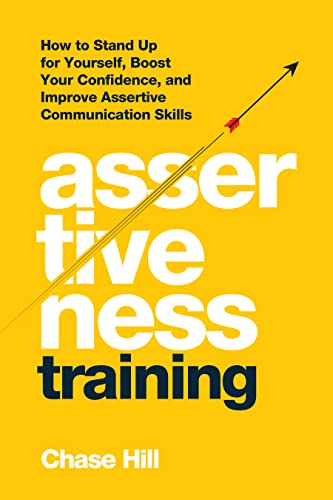Have you ever found yourself in a situation where you wanted to speak up and express your needs, but you couldn’t find the right words or lacked the confidence to do so? If so, you’re not alone. Many people struggle with assertiveness, often opting to remain silent or allowing others to overshadow their needs. But the truth is, assertiveness is a valuable skill that can have a profound impact on your personal and professional relationships.
Being assertive means expressing your thoughts, feelings, and needs in a clear and respectful manner, without infringing on the rights of others. It’s about standing up for yourself, setting boundaries, and advocating for what you want. However, being assertive is often mistaken for aggression or rudeness, leading many individuals to avoid it altogether. But don’t be intimidated! With practice and a few helpful techniques, you can boost your assertiveness and transform your relationships.
I used to struggle with assertiveness myself. I was constantly putting others’ needs above my own, often agreeing to things I didn’t want to do or remaining silent when someone crossed my boundaries. It was exhausting and detrimental to both my self-esteem and my relationships. But over time, I realized that being assertive was crucial for my well-being and happiness. I embarked on a journey of assertiveness training, and it has made a world of difference in my life.
The first step in becoming more assertive is understanding your rights. Each of us has the right to be treated with respect, to express our opinions, and to say no without feeling guilty. Recognizing these rights and acknowledging their importance is fundamental to assertiveness. So, take a moment to remind yourself of your worth and the rights you deserve.
Another essential aspect of assertiveness is effective communication. When expressing your needs, it’s important to be clear, concise, and direct. Use “I” statements to express your thoughts and feelings instead of placing blame on others. For example, instead of saying, “You never listen to me,” you could say, “I feel unheard when I share my thoughts, and it’s important for me to be listened to.” This approach enables you to express yourself assertively while maintaining respect for the other person.
Learning to say no is also vital in assertiveness training. Many of us struggle with saying no because we fear rejection or disappointing others. But remember, saying no doesn’t make you a bad person, and it’s crucial for setting boundaries and taking care of yourself. Practice saying no in a polite, firm manner without providing elaborate excuses or justifications. A simple “No, I’m unable to take on that task right now” will suffice.
Building self-confidence is another essential component of assertiveness. When you believe in yourself and your abilities, it becomes easier to express your needs and opinions confidently. Understand that it’s okay to make mistakes, and don’t let past experiences or negative self-talk hold you back. Surround yourself with supportive people who uplift and encourage you to grow.
Role-playing is a powerful technique that can enhance assertiveness. Enlist the help of a trusted friend or mentor to practice assertive scenarios. This allows you to experiment with different ways of expressing yourself and gain confidence in your ability to assertively communicate your needs. Role-playing can also be a helpful tool for managing potential conflicts and dealing with difficult conversations.
It’s important to remember that assertiveness is a skill that develops over time. Don’t be too hard on yourself if you stumble along the way. Each opportunity to assert yourself is a stepping stone towards becoming more confident and self-assured. Embrace the process and celebrate your progress, no matter how small.
Incorporating assertiveness into your daily life will have a profound impact on your relationships. When you express your needs clearly and respectfully, you give others the opportunity to understand you better. It fosters open and honest communication, leading to healthier and more fulfilling connections.
In conclusion, assertiveness training is a journey that can transform your life. By recognizing your rights, mastering effective communication, learning to say no, building self-confidence, and practicing assertive scenarios, you can become more assertive and express your needs with confidence. Remember, asserting yourself is not about being aggressive or demanding; it’s about respecting yourself and others. Start your assertiveness journey today, and watch as your relationships thrive and your self-esteem soars.
